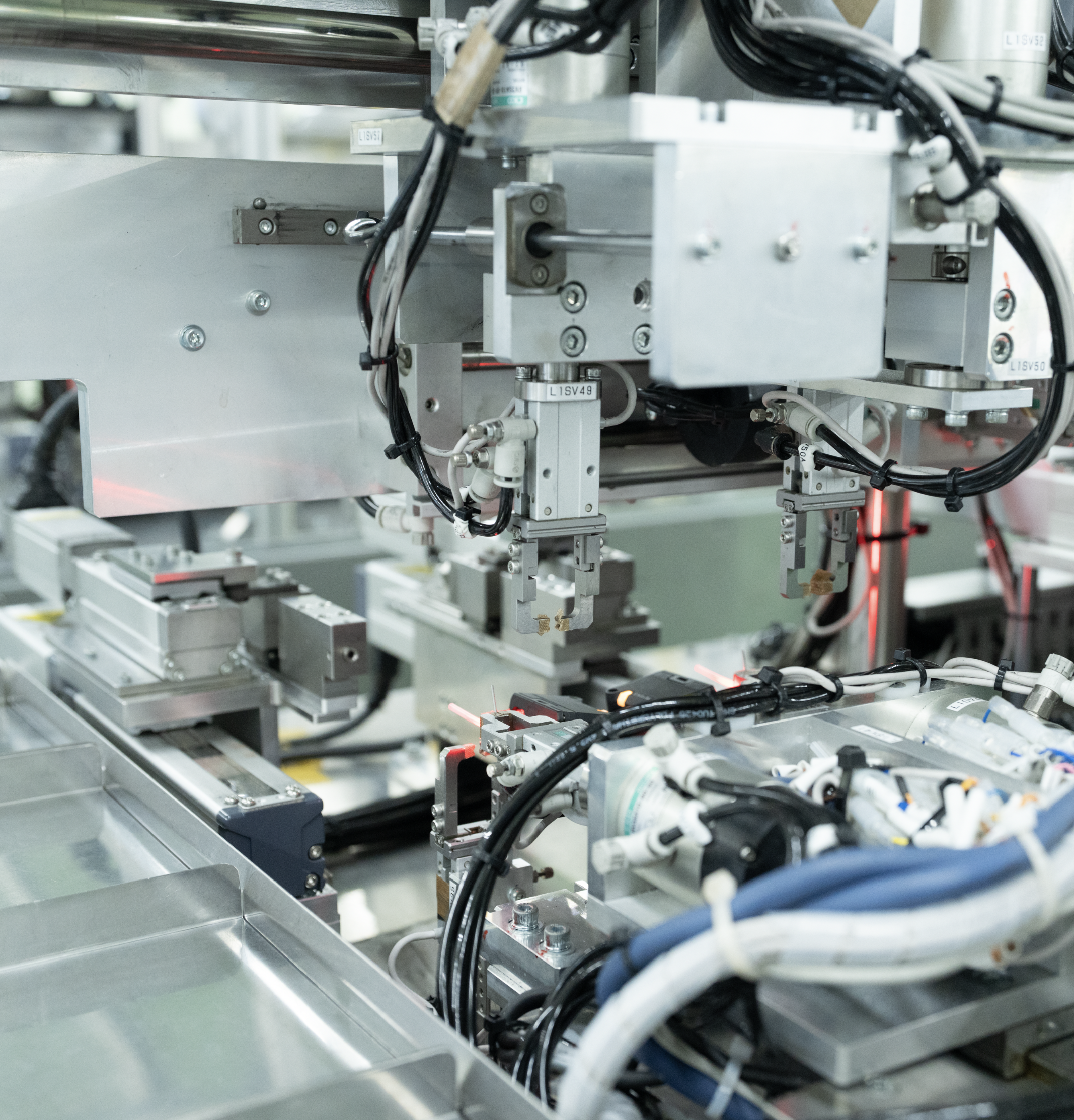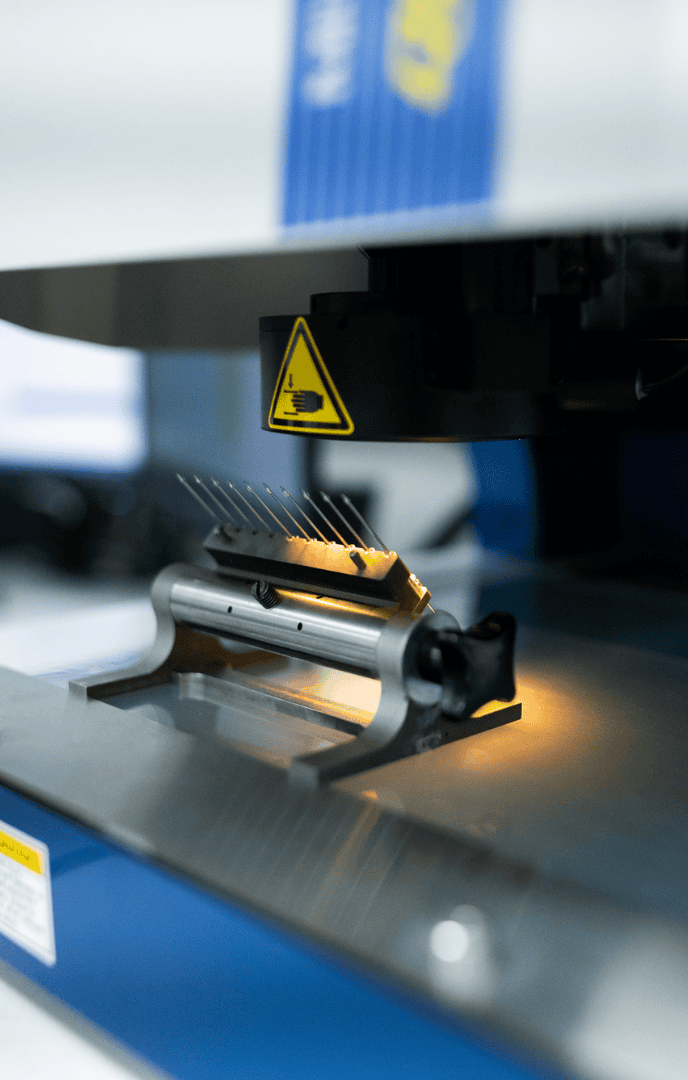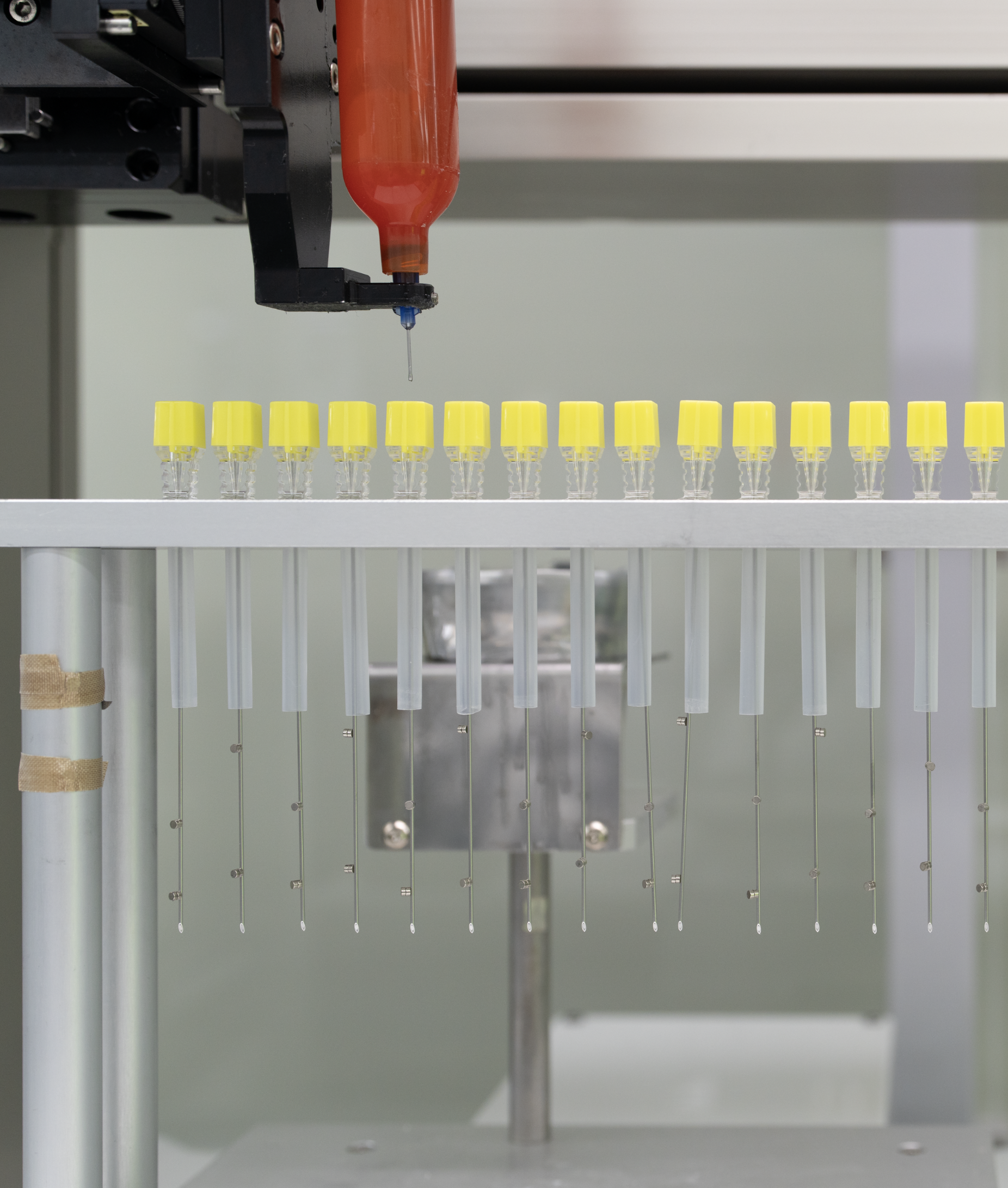
Manufacturing Capabilities
MANUFACTURING NEXT-GENERATION MEDICAL DEVICES
TECHNOLOGY AND EXPERTISE TO ENSURE YOUR SUCCESS
We apply our extensive manufacturing capabilities to deliver precision solutions with excellence. We combine tailored development services with high quality, cost-effective manufacturing processes to ensure your project success.

LASER TECHNOLOGY
Our temperature-controlled Laser Technology Center employs
high-volume production equipment and purpose-built systems to meet your component requirements. We laser cut features in tube from 0.2 mm to 20 mm, and our minimum kerf width of 0.012 mm enables us to meet your component design needs.
4-axis tube laser cutting, providing off-axis profiles on four separate systems
High-precision, flat-bed micro-laser cutting
Micro-laser welding, including automated welding systems (0.1mm spot size)
Laser marking on metal or plastic with distinct matte black finish
Laser cutting on stainless steel and Nitinol
Laser ablation providing engraved surface text, features or mold keys
MICRO-MACHINING
Elevaris Medical operates full 4D design and machine programming systems. We can interpret customer requirements via drawings or computer models, and quickly establish feasibility and delivery plans.
We utilize proprietary combination of laser technology, EDM wire erosion and sink erosion, 5-axis CNC machining and 3D Metal Printing Technology to ensure we can uniquely meet our customers’ high expectations in component manufacturing.
GRINDING
Our engineers use grinding technologies from standard bevel grinds to specialized designs like those needed for trocar or micro needles. Count on us for these grinding methods and tip styles:
Centerless grinding for precision solutions
Computer Numerical Control grinding for precise, repeatable grinding of complex needle tip geometries
Electrochemical grinding, which allows for highly precise and burr-free tip grinding
Standard Bevel and A&B Bevel grinds
Lancet points, suitable for precise cutting and sampling
Trocar grinds, designed for creating access points in minimally invasive procedures
Diamond points, durable, multi-faceted tips
Micro needles, often used for diagnostics and drug delivery
INJECTION MOLDING
Injection molding is a manufacturing process where molten material is injected into a mold cavity, where it cools and solidifies, creating a part with the desired shape. This process is commonly used for plastics, but can also be used for other materials like metals and glasses. The process involves several key steps: clamping the mold, injecting the molten material, holding pressure, cooling, opening the mold, and ejecting the part.
INSERT MOLDING
Insert molding is a specialized injection molding technique that integrates pre-formed components, often metal inserts, into a plastic part during the molding process. Molten plastic is injected into a mold containing the insert, bonding it to the plastic and creating a single, integrated component. This process enhances durability, functionality, and can reduce assembly steps.
CLEANROOM ASSEMBLY
We have world class cleanroom assembly areas in both our manufacturing locations.
Our ISO Class 7 and Class 8 cleanroom assembly areas have been developed for a number of specific customer products. This has provided a wide range of assembly capabilities, from packaged needles to hypo-tube catheter delivery systems.
We can support both development and production volumes.
Cleanroom assembly capabilities consist of:
Metal and polymer component cleanroom sub-assembly
UV and air-cured adhesive bonding
Automated heat shrinking with FEP & PET tube
PTFE tube inner liner installation
Automation - hi-speed assembly and inspection
Packaging and pouching
Testing and qualification
-
The Elevaris Product Assembly Group carefully designs and manufactures each component to meet stringent quality standards. We also offer quick turnaround times with our assembly and packaging services to make the process easier for you.
Our highly efficient and automated assembly capability, with fully validated packaging processes, is available for companies looking for contracted packaging solutions to market their products as quickly and easily as possible.
We also offer an array of packaging, private-label, and EtO sterilization options to meet your needs.
For low-volume operations, our team can hand pack your product into Tyvek® pouches that we then can label and sterilize.
Our state-of-the-art MULTIVAC packaging solution is a great option for high-volume components or finished goods. We can configure our MULTIVAC to incorporate Tyvek or paper, depending on your sterilization process objectives. Both options ensure that your product coding and marking is compliant with UDI requirements for traceability.
PRECISION FORMING
Precision forming is a cornerstone process in medical device manufacturing, enabling the mass production of complex, high-strength components with micron-level accuracy. We know that performance, reliability and compliance are non-negotiable, so we use precision forming in:
Swaging for reduction and pointing
Bending and shaping
Pressing and flattening
METAL FINISHING
Metal finishing enhances surface properties, functionality, and biocompatibility and plays a vital role in ensuring that metal parts meet strict medical standards for performance, cleanliness, and safety. We use metal finishing in the following processes:
Electropolishing
Chemical Etching
Passivation
Siliconization
Chrome plating





























